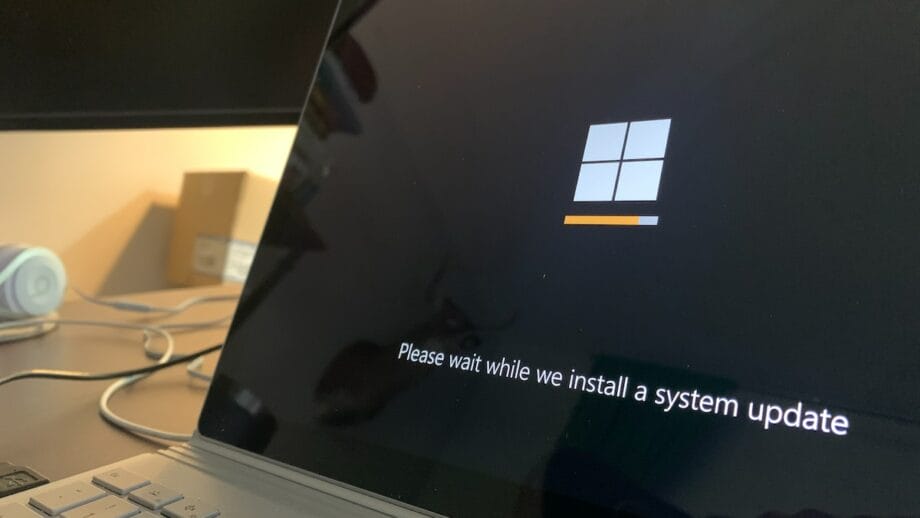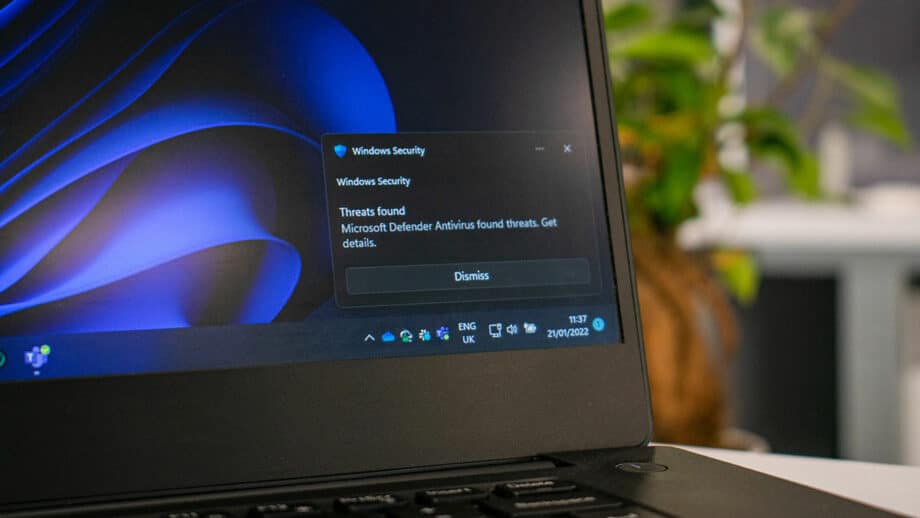Windows 11 changed the approach of how Microsoft makes the system immune to threats. Because of the sheer weight of their numbers and given that cyber threat superiority continues to rise in an almost exponential fashion, it is more than very important for robust security measures. In this post, we will discuss new Windows 11 security features related to VPN support, hardware-based isolation and Virtualization-Based Security (VBS). We will also discuss these features in reference to older Windows versions. Moreover, we will describe how these advancements affect IT specialists as well as common users.
The Security Landscape of Previous Windows Versions
Some of the earlier versions like Windows 10 have set the bar high in terms of system safety. On the other hand, they encountered problems such as ransomware infestations and phishing tactics. Some of the steps towards sturdy security were evident in features such as Device Guard and Secure Boot introduced by Windows 10. However, the advancing threats in digital technology require superior steps.
Related: Windows Software Development Kit (SDK): A Complete Guide.
Key Security Features in Windows 11
With the many threats that are currently facing users today, Windows 11 indeed takes a significant stride in Microsoft’s security commitment since it comes with advanced features that actually provide defense against sophisticated cyber-attacks.
VPN Support
Also, Windows 11’s VPN support has been enhanced. VPN services are important for a private and secure online experience. That’s why you might use VPNs for Windows, they hide your online activity and location protecting both personal privacy and business security. Using VPNs like PIA in Windows 11 becomes easier, and more integrated.
Hardware Security
From the bottom of the ladder, Windows 11 has set a new standard for hardware security by mandating TPM 2.0 support. Trusted Platform Module (TPM) technology is an essential security standard with hardware-based, security-related functionality. The TPM chip is a tamper-proof crypto processor that provides cryptographic operations. With multiple physical security mechanisms on a single chip make the chip tamper resistant and malicious software cannot alter the security properties of TPM.
With TPM 2.0, essential cryptographic keys are preserved securely and cannot be abused via software attacks. This requirement supports sundry encryption features and is central to fortifying the general security apparatus of Windows 11 devices.

Virtualization-Based Security
The introduction of Virtualization-Based Security (VBS) in Windows 11 is one that stands out. In VBS, a safe memory area is created and separated from the ordinary operating system using hardware virtualization features. The isolated secure region of memory is then leveraged to host the most advanced security solutions that still cannot be breached by upgraded-stage malware including the operating system level. Therefore, VBS can be made to shield the integrity of sensitive processes so that if an attacker violates the infrastructures produced, there is a limit on how much they may breach.
VBS also serves as the basis for other security technologies including Hypervisor-Protected Code Integrity (HVCI), which makes sure that Windows Kernel is genuine and cannot be tampered with by attackers.
User Authentication
Supercharging user authentication, Windows 11 strides forward with Windows Hello, enabling users to eschew passwords in favor of more secure and personal biometric sign-in options. These are biometric technologies such as some facial recognition and fingerprint scanning amongst others which use special hardware to provide accurate and speedy services with minimal login risks such as phishing attacks related to password logins.
In addition, biometric authentication is an easy and secure way of convincing users to adopt it which makes the task for cyber criminals tedious. Other tools for authentication and secure access management include Okta, while 1Password is the preferred tool to store and manage passwords.
Enhanced Encryption
For data protection, Windows 11 comes with improved encryption features such as BitLocker. The BitLocker works by encrypting all data in the Windows operating system volume and configuring data volumes. This is why encryption plays a key role in this protection system mainly for situations with the possibility of device loss or theft leaving data meaningless to any unauthorized individual that lacks appropriate credentials or recovery key. This encryption is intrinsically tied to the TPM technology that can assist in the secure management of encryption keys.
Update Process
In addition, Microsoft changed the update process in Windows 11 which is one of the most important stages for cyber security – making sure that software always stays up to date. Windows 11 updates, nonetheless, are up to 40% smaller and installed more efficiently; they also quietly take place in the background and reboot less frequently. This simplified process enables the users to keep up with the most recent security patches, not being thereof burdened in updating, which is a very essential element for maintaining a secure environment.
Threat Protection
Lastly, the operating system comprises of strong threat protection associated tools including Microsoft Defender Antivirus and Microsoft Defender Firewall. These tools have been highly advanced to ensure uninterrupted real-time protection against the likes of viruses, malware, ransomware, and network-based attacks. Using better heuristics and machine learning, these tools are able to detect new threats accurately or with more precision. The method can drive down the rate by which malware infections are made by nearly 60% if Microsoft is to be believed.
In a nutshell, Windows 11 enhances the security of its predecessors through deeper hardware security integration, advanced threat protection features, encryption, and a simplified user-friendly update process. This all-encompassing security framework secures users throughout the digital plane: from hardware to software and from desktop to cloud.
See also: How to Install Hyper-V on Windows 11: Three Ways to Enable Hyper-V.
Comparative Analysis: Windows 11 Security vs. Previous Versions

Windows 11 has offered major security changes in comparison to precedence versions such as Windows 10. While Windows 10 comes with “better” security, Windows 11 does much more particularly against newly arisen forms of cyberattacks.
Security Features in Windows 10 vs. Windows 11
The requirement for all computers to have TPM 2.0 (Trusted Platform Module version 2.0) is one major change in Windows 11. Instead, Windows 11 has made TPM 2.0 go from optional to a must-have system requirement. This helps in blocking attackers from hacking through the computer’s hardware, making your computer safe.
Windows 11 also makes updates easier. Its updates are 40% smaller compared to Windows 10. As a result, your computer will have faster updates and less frequent restarts. This is possible due to the provision of updates that keep your computer safe from new threats.
Windows 10 also brought new authentication features including Windows Hello which gives users fingerprint or face recognition options to avoid passwords. Windows Hello will still be present in Windows 11; however, the new OS also offers faster and more dependable biometric authentication. In addition, Windows 11 also comes with an upgraded BitLocker. The encryption occurs at the file level hence one file being compromised does not compromise the other files.
In terms of updates, Windows 11 also makes everything streamlined. The Windows 10 update process was criticized due to its disruptive and inconsistent nature, but Windows 11 has targets of making updates smaller by up to 40% and time aware. According to Microsoft, these updates are simpler, less tough, and occur in the background. The new system can allow fewer interruptions since its update size is lesser, an elementary security hygiene that ensures the installation of security patches immediately after they are issued and without major user perturbations. Such an attention to the seamless updates could become a serious benefit in order to keep computing environments safe from new growing threats.
What Does This Mean for You?
To put it simply, Windows 10 lays the groundwork for securing your computer – while on the other hand, Windows 11 takes this to a new level. It is based on superior technology and strong hardware security. This implies that your PC is much safer from different forms of cyber threats with Windows 11. Therefore, whether you’re doing your normal stuff on a laptop or working with it the whole day, Windows 11 gives more security as well as advanced peace of mind.
Impact on Everyday Users
These improvements translate into more secure computing for the everyday users. The improvements don’t only revolve around protecting oneself from high-level threats and making daily activities such as web browsing or emailing more secure. What is even better about these security features is that they all work in the background; enabling them to protect a user without having to interfere with their experiences.

Implications for IT Professionals and Enterprises
Windows 11 includes advanced tools for protecting enterprise environments, which is definitely beneficial for IT professionals. With improved security capabilities, IT teams are able to protect themselves from advanced persistent threats and ransomware infections. Yet, Windows 11 deployment in the enterprise can be challenging. Substantial infrastructural investments may require an analysis of which hardware will support new security features and the extent to which hardware needs upgrading or replacing.
Case Studies and Real-world Application
The effectiveness of these security enhancements is proven by their application in the real world. An example of such a study is Microsoft, which showed that systems with Windows 11 VBS and hardware-enabled isolation were harder to attack by malware as opposed to those without the features.
Challenges and Considerations
However, even with such improvements, Windows 11 security features still have some challenges. Support for enhanced security features with new hardware may imply the adoption of those upgraded hardware while upgrading from existing systems. Some users may also consider the balance between high security and system performance.
Looking Ahead
Windows security will continue to progress with the evolving cyber threats. Microsoft users and IT professionals must expect that Microsoft will continuously develop updates with the aim of improving its security features. Knowing about these updates and mastering how to use them will be crucial in upholding strong security in the digital age.
Related: 20 Important Software for Your New Windows Laptop or PC.
Conclusion

Windows 11 operation system has set a new OS safety standard. Microsoft’s focus on improved hardware-based isolation and VBS shows its dedication to protecting users from new-age cyber threats. In an age where digital security is crucial, the developments offer peace of mind to casual users as well as IT experts since they are not mere improvements in protection.





